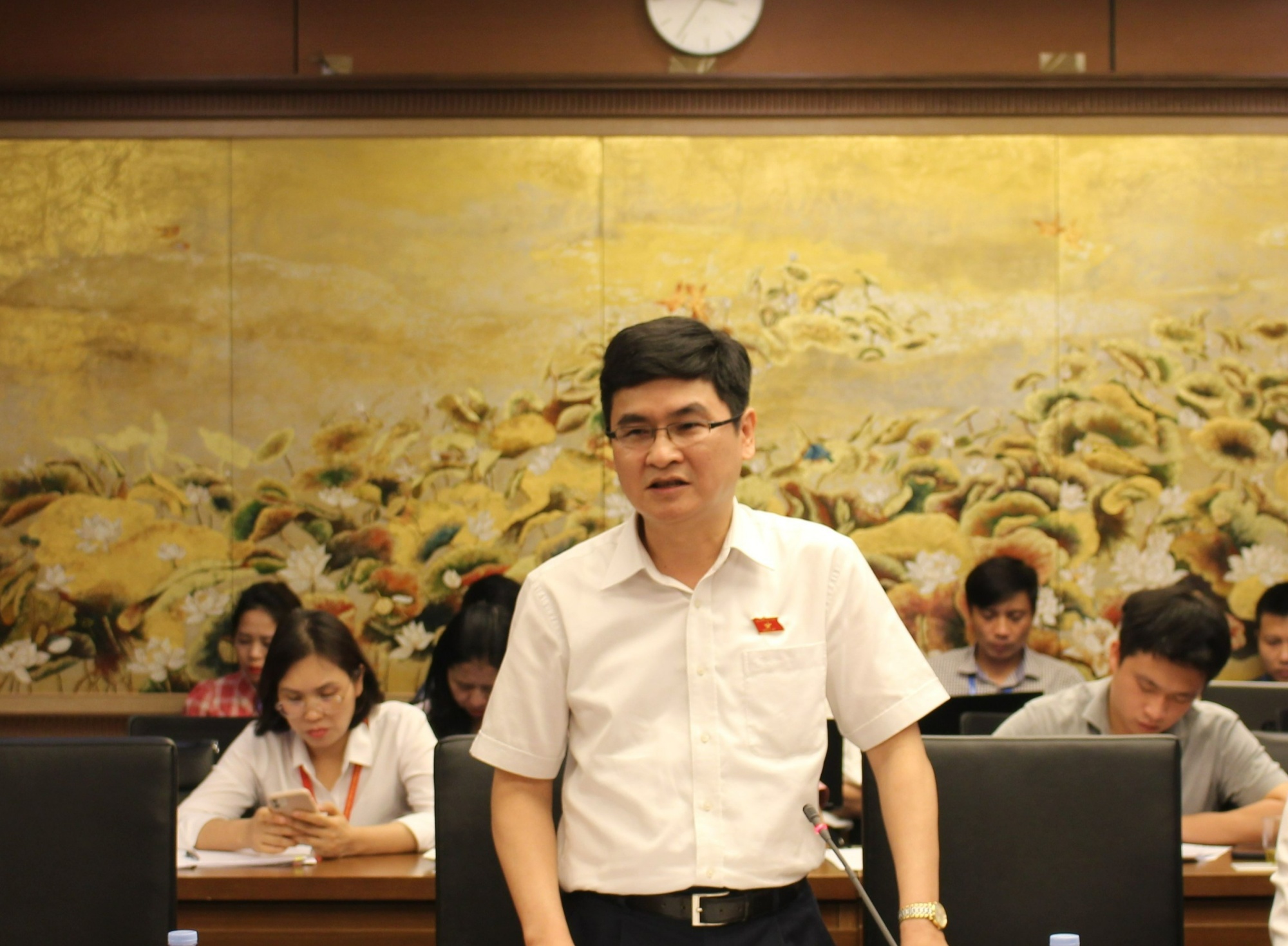Why real estate prices increase abnormally?
Continuing the 5th session program, on the afternoon of June 19, National Assembly deputies discussed in groups the draft Law on Real Estate Business (amended).
Discussing in groups, delegates agreed on the need to comprehensively amend the Law on Real Estate Business to ensure consistency and unity of the legal system; contributing to the development of a stable, transparent, healthy and sustainable real estate market.
Speaking, delegate Hoang Van Cuong ( Hanoi delegation) said that the draft revised Law needs to focus on issues that have been emerging in recent times such as real estate transactions, because we almost do not understand how the market operates; there are types of real estate that increase in price abnormally, rumors that cause abnormal price increases, and cannot be managed.
Paying special attention to real estate formed in the future, Mr. Cuong said that, in fact, real estate formed in the future has caused many consequences for the market because it is often bought and resold.

National Assembly Deputy Hoang Van Cuong speaks.
Real estate prices increase abnormally mainly for future assets, but when land and houses are already available and built, prices are almost stable, not increasing or decreasing abnormally.
“In the world, I have not seen any country selling real estate that will be built in the future. If investors want to raise capital, they can issue bonds for that project and establish a real estate investment fund. These bonds can then be converted into housing.
I hope the law will be amended and should not stipulate that real estate projects that are formed in the future and investors who want to raise capital can issue convertible construction bonds. From there, people who want to buy land and houses will have the opportunity to invest and control the project," Mr. Cuong stated his opinion.
Second is the issue related to real estate trading floors and real estate brokers, Mr. Cuong said that brokerage is a professional profession, playing the role of intermediary, honesty, and transparency in the real estate market.
Therefore, the Hanoi Delegation representative proposed that the draft revised Law should clearly define the responsibilities and powers of real estate trading floors, so that people who transact through the floor do not fear being scammed...
Many investors just "beat the drum to register their names"
Regarding deposits in housing business and future construction projects, many delegates agreed with the Economic Committee that the issue of deposits in housing business and future construction projects is not regulated in the 2014 Law on Real Estate Business but is implemented according to the 2015 Civil Code on the principle of voluntary agreement between the parties.
However, because real estate is a valuable asset, buying or leasing a house or a construction project in the future has many potential risks, so it is necessary to regulate the receipt of deposits to protect the interests of customers.
Regarding real estate trading floors, delegate Nguyen Tuan Thinh (Hanoi delegation) agreed with the Economic Committee that it is necessary to respect the right of businesses and people to choose to participate in transactions through real estate trading floors, and proposed not to require real estate transactions to go through real estate trading floors as in Clause 1, Article 57 of the draft Law, but only to encourage organizations and individuals to conduct real estate business transactions through real estate trading floors.

National Assembly Deputy Nguyen Tuan Thinh said that strict regulations are needed to create a legal basis for real estate trading floors to develop in a professional and effective direction.
At the same time, strict regulations on conditions, rights and obligations of real estate trading floors create a legal basis for real estate trading floors to develop in a professional, effective and reputable direction, attracting parties to participate in transactions.
Through practical research, Mr. Thinh believes that current regulations related to real estate business still mainly support trading floors (ie intermediaries, not directly support people with real needs).
From the above shortcomings, Mr. Thinh said that the draft Law on Real Estate Business (amended) needs to clarify the State management function as well as the collection and control of information of these real estate trading floors to ensure the rights of customers.
Participating in the discussion, delegate Pham Duc An (Hanoi delegation) pointed out the recent situation of the real estate market increasing due to speculation, which has directly affected socio-economic development. In particular, many investors only "beat the drum to register their names" when real estate projects drag on for too long without being able to be implemented.
Some businesses even went bankrupt due to lack of capital because they were implementing too many projects at the same time. Therefore, customers are the ones who suffer when they put down a deposit to buy a house but the project is "suspended" and cannot be implemented.
“The draft law should have specific and binding regulations so that investors are responsible for projects when implementing them. At the same time, we should resolutely revoke projects that have been suspended for too long and whose investors do not have the capacity to complete the projects,” Mr. An suggested .
Source



























![[Photo] National Assembly Chairman attends the seminar "Building and operating an international financial center and recommendations for Vietnam"](https://vphoto.vietnam.vn/thumb/1200x675/vietnam/resource/IMAGE/2025/7/28/76393436936e457db31ec84433289f72)









































































Comment (0)